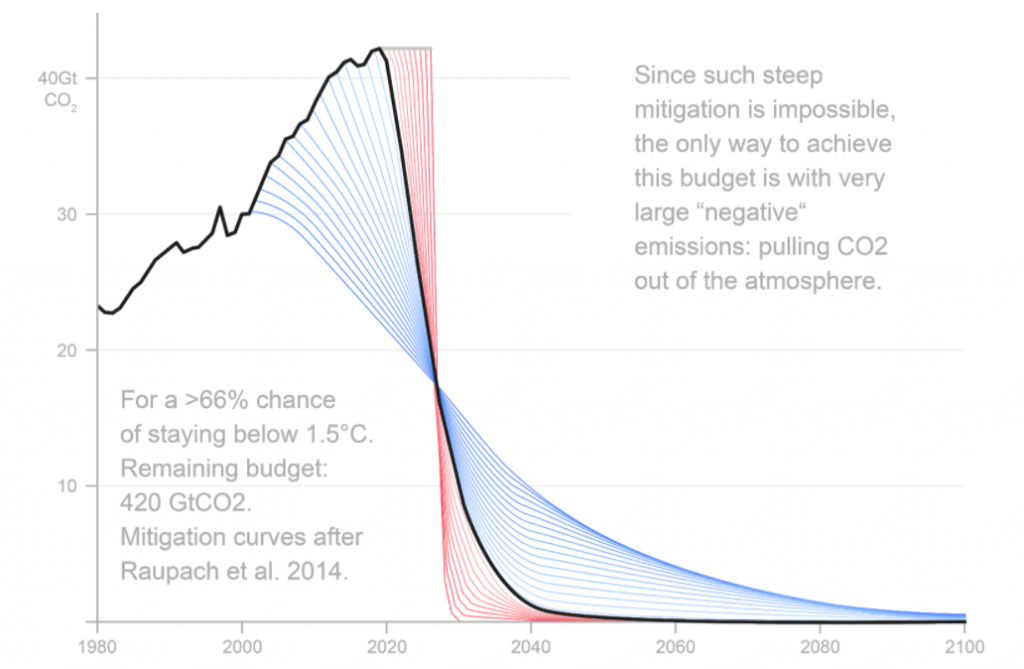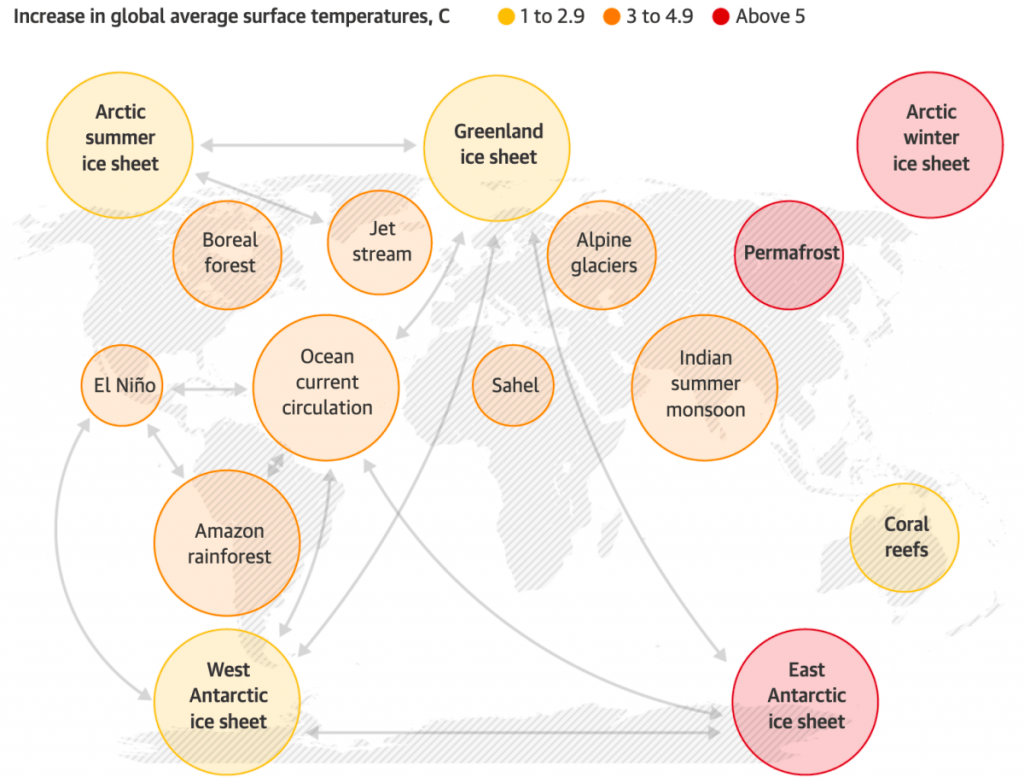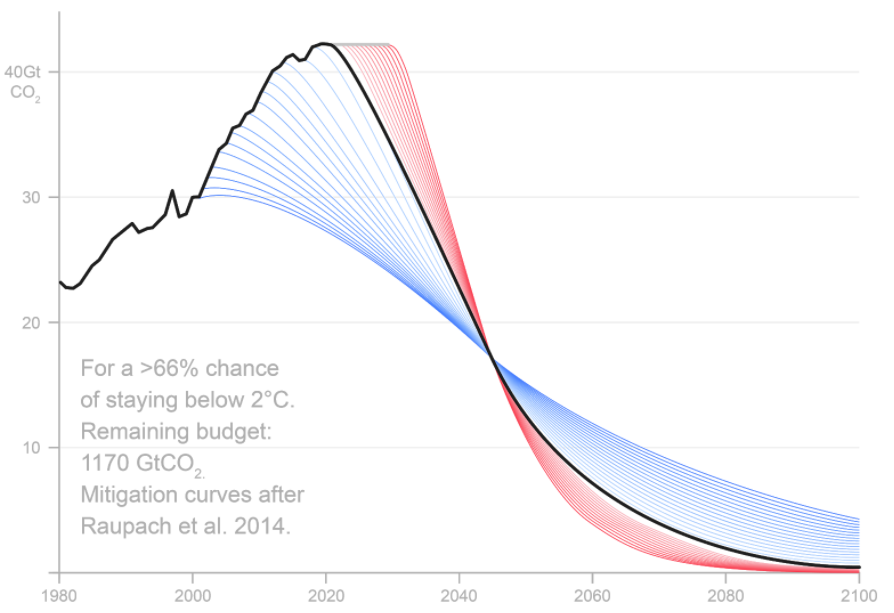How much time do we have?
Written by Gurpreet on February 18, 2021

A comprehensive study published in July 2020 shows that without drastic action, Earth will be 2.6°C to 3.9°C hotter in 2100 than it was before we started to burn fossil fuels at a massive scale. This article gives you an overview of climate goals and what exactly is necessary to reach them.
💡 Temperatures like “1.5C” and “2C” refer to heating of Earth’s surface compared to the time before the industrial revolution.
Why does this matter?
We’re causing Earth’s sixth mass extinction, hurricanes, droughts, heat waves and pandemics. Billions will live in uninhabitable areas by 2070. More will seek refuge. Our only chance to stop all that is to limit our environmental damage and global heating.
1.5C is now impossible

Had we started reducing our greenhouse gas emissions by 4% per year in 2000, Earth would probably only heat up by 1.5C until 2100.
Yet, we didn’t. Today, it’s virtually impossible to still reach that goal. We would need at least 10% reduction per year. That’s two additional Corona lockdowns every year (lockdowns reduced emissions by 5% in 2020).
2C is probably not enough

Recent studies indicate that beyond 1.5C, tipping points trigger each other and push the climate system closer to a so-called hothouse state with 4°C heating.
But in any case it’s clear that every tonne of saved CO2 makes a difference. And the closer we get to 1.5C, the more habitable Earth remains.
What’s necessary to hit at least the 2C goal?

If we reduce our emissions by 6% per year, we can make 2C. And with bigger reductions we can of course get further.
The issue becomes serious as soon as we put numbers in relation:
- The first corona lockdown leads to 5% reduction in 2020. That means in 2021 we’d need the effect of at least two Corona lockdowns. Without redistribution that would result in famine and huge social problems.
- If we miss a year or take a break, we have to reduce by 12.4% in the next year.
- Everything we emit today must disappear within the next thirty years.
If not now, when?
It’s too late to preserve today’s Earth. But humans can adapt and are optimistic. If we do everything in our power to act, we save a part of our future.
Who will take care of that if not you?